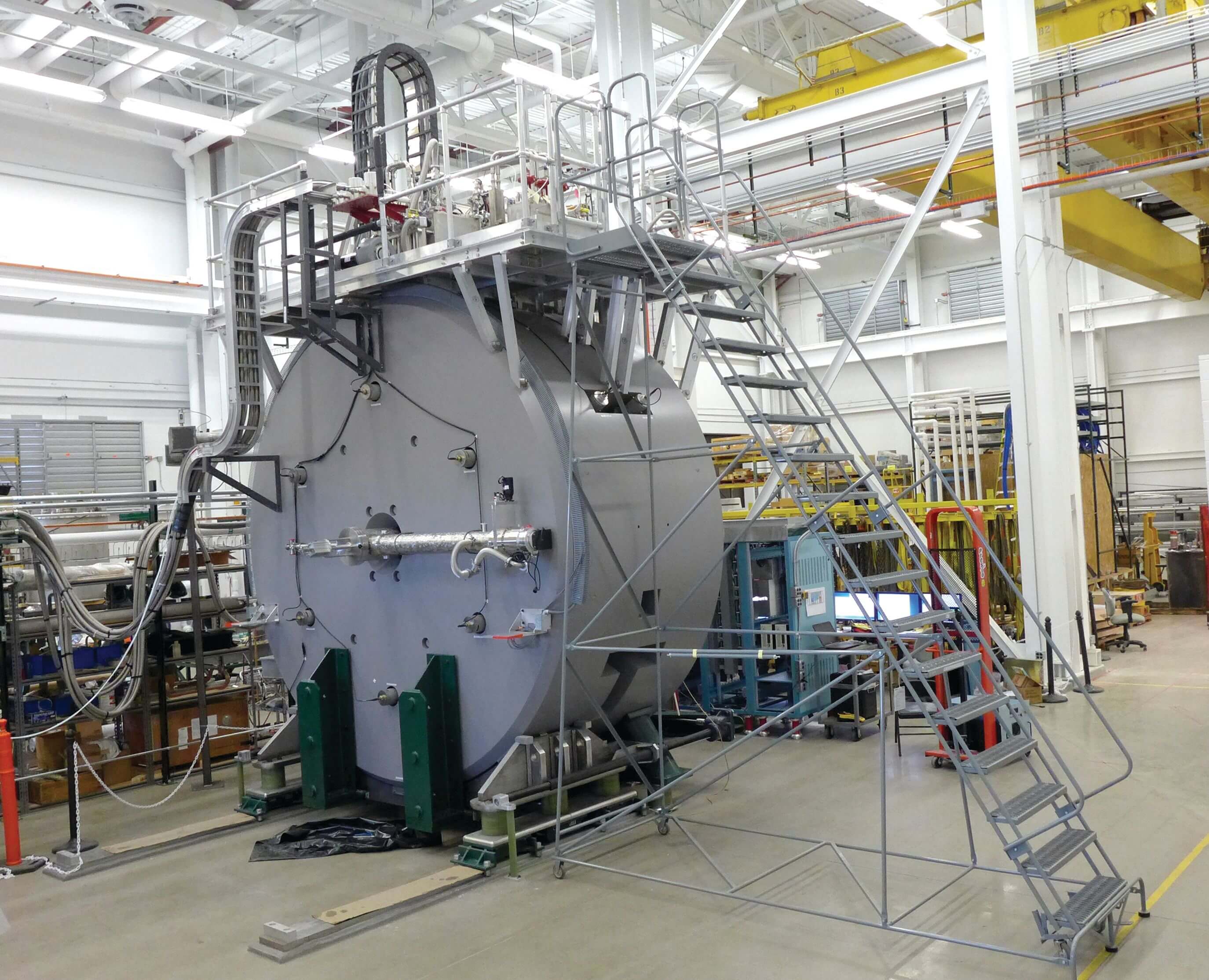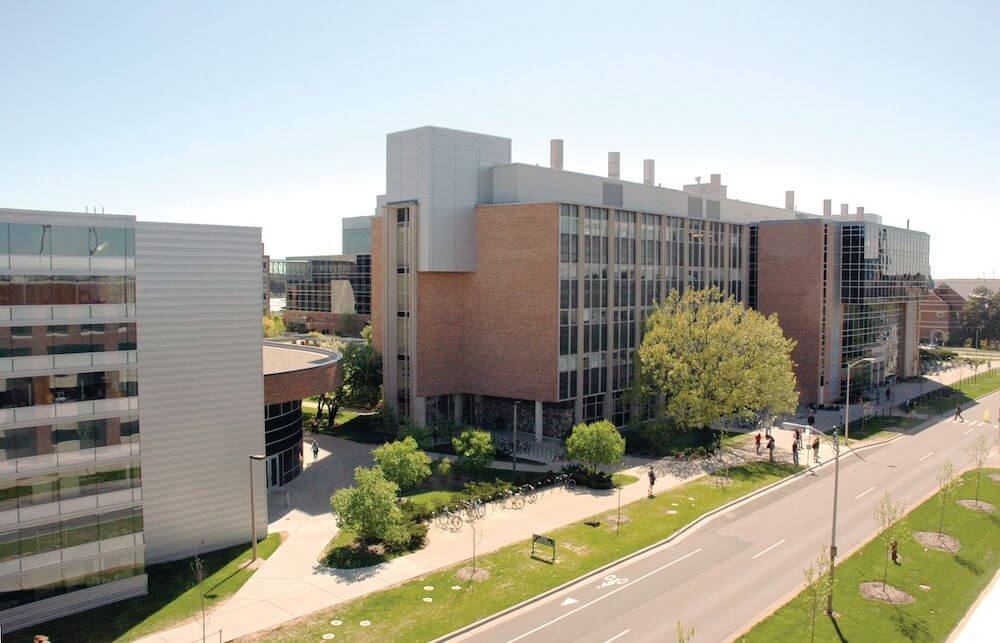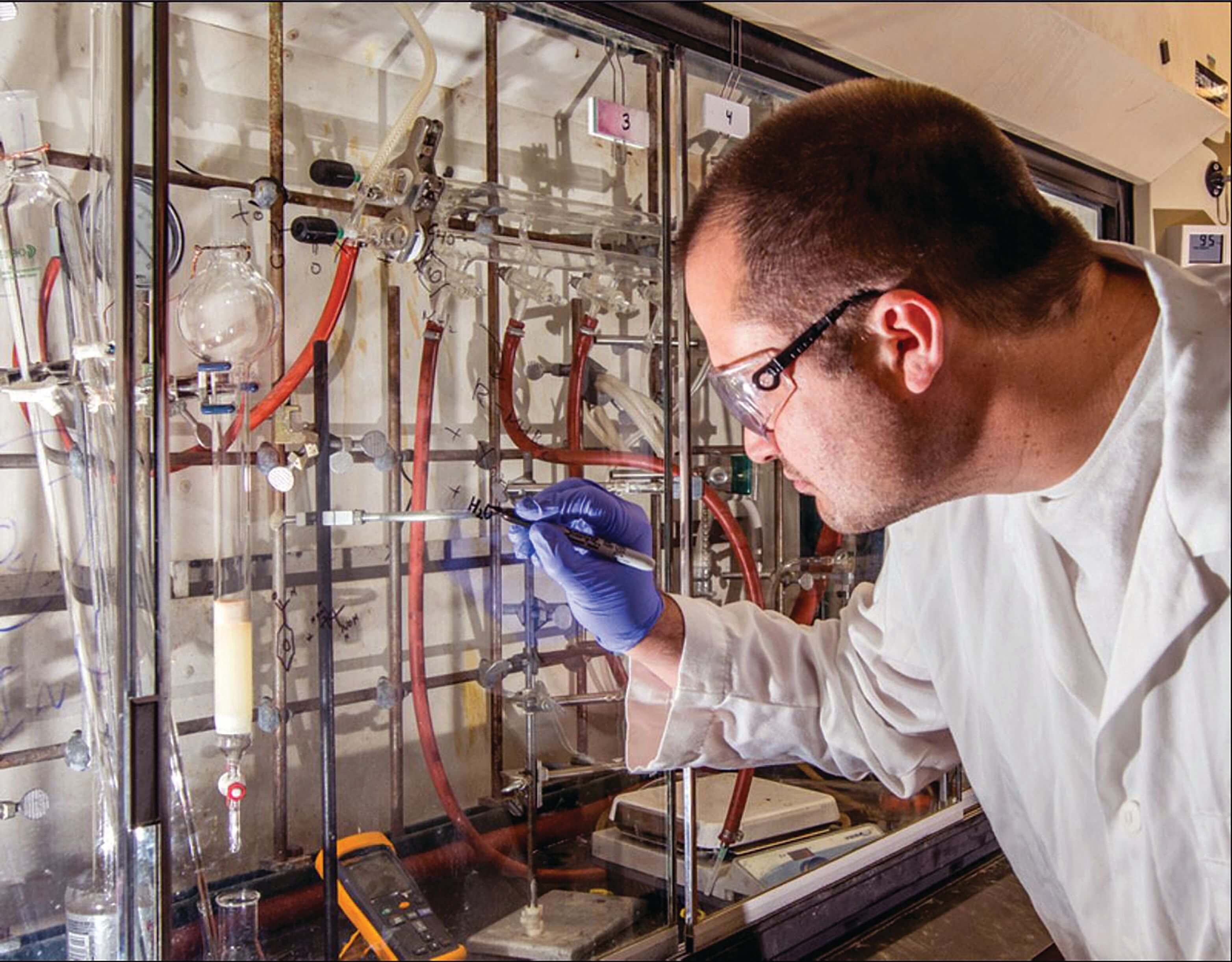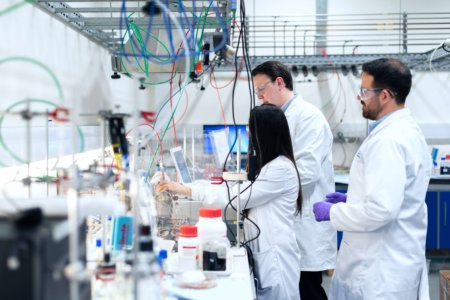There’s no science more fundamental to our world than chemistry. By definition, it is the study of matter and its interactions with other matter and energy. Little wonder why the field touches almost every aspect of our existence in some way — think food, clothing, shelter, health, energy, water, clean air, or soil.
There’s never been a more crucial time to study chemistry. Angela Wilson, 2022 President of the American Chemical Society, confirms this, stating: “Between the COVID-19 pandemic, the UN Sustainability Goals, and impending shortages of vital elements (due to natural or geopolitical reasons), advances in chemistry are vital. These challenges are enormous and will take many, many years to fully address. They require research chemists that are well engaged and experienced working across fields.”
Michigan State University (MSU) — where Wilson also serves as a Distinguished Professor of Physical, Theoretical, and Computational Chemistry — has a PhD programme designed to produce these world-bettering discoverers.
MSU’s Department of Chemistry itself has consistently stayed at the forefront in chemistry research and teaching since its inception. It has even transformed itself countless times to remain in line with scientific developments.

Approximately 60% of the Department of Chemistry’s expansive space is devoted to research laboratories, instrument facilities and supporting shops. Source: Michigan State University
With a PhD in Chemistry from MSU, students gain sufficient experience in the performance of original research in a supervised setting. Upon completion, they evolve into independent researchers with the know-how to identify worthwhile studies to be conducted within industry or government. As a result, they develop the competencies needed for a career in academia.
Coursework and research opportunities span physical, organic, inorganic, and analytical chemistry. Cross-disciplinary and interdisciplinary areas, such as polymers, materials, surface science, spectroscopy, theoretical chemistry, and biological chemistry are covered as well.
Since conducting research in chemistry requires substantial background knowledge in mathematics, physics, and biology, the programme also covers foundational topics other programmes expect applicants to already master.
The journey begins with the right support. Upon arrival, every graduate student is paired with a faculty advisor who specialises in their chosen area of interest and provided with desk space in a research lab.

With a PhD in Chemistry from MSU, students gain sufficient experience in the performance of original research in a supervised setting. Source: Michigan State University
“Students are placed in a laboratory as soon as they arrive,” Wilson explains. “This provides them with a chance to get to know more senior graduate students and become familiar with the American laboratory environment. They learn about all of the available advisors and projects over the first semester and typically begin research at the end of the first semester.”
The PhD in Chemistry is just as flexible as it is experiential. Students often work alongside their mentors to tailor the programme according to their aspirations. Those unsure of their future speciality just yet are provided with several opportunities that can help narrow down their options.
However, it’s not hard to gain inspiration when surrounded by the state-of-the-art resources that make the Department of Chemistry the dynamic collective it is. It occupies an air-conditioned building with 280,000 square feet of floor space distributed over five main floors, two basements, a penthouse complex, an office annex and a lecture-hall wing. Approximately 60% of the space is devoted to research laboratories, instrument facilities and supporting shops.
The best part? All graduate students are granted 24-hour access to the building, its computer rooms, and their respective research laboratories or offices. Peek through windows and you’ll witness enduring connections being forged through passionate discussion.
“MSU provides a terrific destination for collaborative opportunities towards real-life solutions,” says Wilson. “Here, chemistry faculty and their research groups are highly engaged in collaborations across campus. Together, they are working to innovate sustainable chemical products, new drugs for diseases such as tuberculosis and therapeutics for cancer, the safety of soils and water supplies, quantum computing, and proactive gear for athletics, amongst many other areas.”
It gets better. Graduate students at MSU are paid to achieve chemistry excellence. Two types of financial support are available: Teaching Assistantships and Research Assistantships. Both roles come with health insurance, a tuition waiver of up to nine credits for each of the Fall and Spring semesters, up to five credits for the Summer semester, and a waiver of the matriculation fees each semester.
For 2020-21, second-year students received US$27,732 annually for their teaching or research assistantship. The additional health insurance and tuition benefits are also substantial, valued at over US$15,000 per year for out-of-state students. Graduate assistantship stipends are automatically increased in the second year. Graduate fellowships are also up for grabs.
It’s little wonder why international students view MSU as an unrivalled choice. Wilson’s cohort comprises researchers from India, Nigeria, China, Portugal, Turkey, Saudi Arabia, France, and Germany — just to name a few.
They are working tirelessly to nurture the next generation of impactful PhD in Chemistry graduates. “My former students have positions at universities, in industry and government laboratories in the US and around the world,” enthuses Wilson, with pride.
To become one of them, click here to learn more about MSU’s PhD in Chemistry today.
Follow Michigan State University on Facebook, Instagram, Twitter, and YouTube













